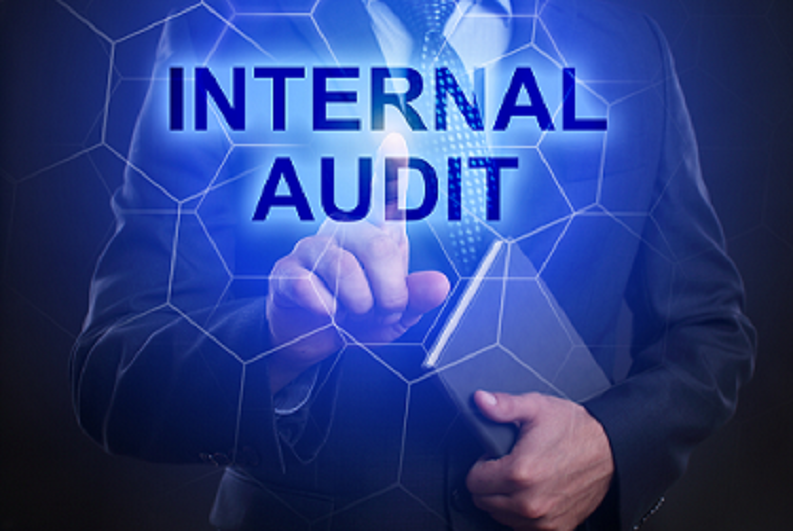Review Of IIA Exam Dumps:
The Institute of Internal Auditors (IIA Exam Dumps) does more than just conduct internal audits. They also work in areas where this work is an integral part of the corporate structure. Risk management, governance, internal control, information technology research, education and security are some of these areas.
IIA says its mission is to provide strong leadership to the world's internal audit profession. To do this, the organization focuses on several things, including:

Please listen to the benefits internal audit professionals bring to their companies. It provides professionals with multiple ways to learn and grow, standards and other education on how to do their jobs, as well as certification programs.
To research, disseminate and promote knowledge about internal audit and fair work in management, risk management and governance among practitioners and other stakeholders. Educating professionals and other relevant organizations on internal audit best practices. Bringing together internal auditors from around the world to share information and experience.
Importance Of IIA-CIA Dumps:
The main professional designation of the Institute of Internal Auditors is the Certified Internal Auditor (CIA) certification. By getting a CIA badge, a person shows that he has a lot to prove about the internal investigation work. In the field of internal audit, this mark is known worldwide as the professional level standard for competence and expertise. The Institute of Internal Auditors also offers qualifications in the Certificate in Internal Audit Leadership (QIAL) and Certificate in Risk Management (CRMA).
Internal audit is neglected, although it has a long history. The IIA honors this long-standing work by teaching professionals and the public how historians have found the roots of internal research over the years. When customers check the receipts for the corn that is being sold. During the 19th and 20th centuries, the work grew with the growth of trade and commerce. Businesses that operate in different locations and employ thousands of people require additional management systems. Many people today consider the Institute of Internal Auditors to be the beginning of modern internal auditing.
What Is The Purpose Of The IIA Exam Dumps?
- The mission of the Institute of Internal Auditors is to lead the world's internal auditing profession in a positive direction.
- Find out how important internal audit professionals are to their business.
- Provide professionals with a variety of ways to learn and grow, standards and other advice on how to do their jobs, and certification programs.
- To review, share, and promote knowledge about internal audit and how it is used in management, risk management, and governance among employees and other interested parties.
- Educate staff and other relevant team members on pregnancy screening.
- Bringing together internal auditors from around the world to share information and experience.
The IIA's two main national certifications are the Certification of Internal Auditor (CIA) and the Certification in Risk Management Accreditation (CRMA). The IIA recommends that all internal auditors work there and earn the CIA, the first internal auditor certificate and qualification. The CIA will show that you are an expert in internal auditing and will put you ahead of your peers. The CIA is a three-part test that covers what the audience needs to know, how to do it, and how they can do it.
If you are an accountant or auditor looking to get more out of your job, you may have thought about getting an auditor certificate. But there are many ways to earn an accounting degree. Which one will you choose? Internal Auditor (CIA) is the right certification for you if you want to become an internal auditor.
What You Need To Know About The Institute of Internal Auditors (IIA).
The Institute of Internal Auditors (IIA Exam Dumps) does more than just conduct internal audits. They also work in areas where this situation is an important part of the company's structure. Risk management, governance, internal control, information technology research, education and security are some of these areas. The IIA states that its mission is to provide strong leadership to research institutions worldwide. To do this, the organization focuses on several things, including:

- Promote and improve the value internal auditors bring to their business
- Provide a variety of professional training and development opportunities, standards and other professional ethics and certification programs
- Review, share, and promote knowledge about internal audit and its appropriate role in management, risk management, and governance among stakeholders and other interested parties.
- Educate professionals and other team members on best practices for conducting internal audits
- Bringing together internal auditors from around the world to share information and experience
The main professional designation of the Institute of Internal Auditors is the Certified Internal Auditor (CIA) certification. By getting a CIA badge, a person shows that he has a lot to prove about the internal investigation work. In the field of internal audit, this mark is known worldwide as the professional level standard for competence and expertise. The Institute of Internal Auditors also offers qualifications in the Certificate in Internal Audit Leadership (QIAL) and Certificate in Risk Management (CRMA).
IIA Exam Dumps:
- IIA IIA-CCSA Exam Dumps
- IIA IIA-CFSA Exam Dumps
- IIA IIA-CGAP Exam Dumps
- IIA IIA-CIA-Part1 Exam Dumps
- IIA IIA-CIA-Part2 Exam Dumps
- IIA IIA-CIA-Part3 Exam Dumps
What Are The Topics Covered By The IIA-CIA Exam?
Before starting to study, candidates should know what will be in the exam as it will help them achieve the most important things.
- Internal Auditing Foundation (15 percent).
- Independence and purpose (15 percent).
- Appropriate professional skills and care (18 percent).
- Assurance and Promotion Program (7 percent).
- Governance, risk management and control (35 percent).
- Fraud risk (10 percent).
IIA-CIA Exam-Freeze:
You can still take the CIA even if you don't have a bachelor's degree, as long as you meet the following criteria:
- Three or more ACCA Levels A or above, or equivalent, plus two years of internal audit experience.
- 4 years internal audit experience
- When applying to IIA Global, you must have proof of your training and education, such as a copy of your A-Level or GCSE certificate or achievement. You can't sign if you can't show this proof later.
Before you reach the CIA level, you must have worked in an internal intelligence or similar position. You must follow these guidelines:
- Two years of diploma experience
- Five years experience at A level or equivalent
- Seven years of experience (plus additional training)
How To Pass The IIA-CIA Exam?
Internal auditor costs are one of the most interesting components of VPI certification. You don’t just work for security as a CIA agent. Instead, you may be happy with your money.
- Wherever you work, the CIA may give you another chance to move up the ranks.
- Certified internal auditors must meet certain requirements set by the IIA. He wants those who want to work for the CIA to show that they have all the skills and abilities they need to do their current job. That is why the IIA gave the CIA some orders to follow. Also, many of these certifications for qualified interior inspectors have different experience and inspection requirements.
- Everyone in the internal investigative world knows what it takes to be a CIA agent. They will think of him in a better light when you become one. Today they will have more respect for you, you will have more confidence in your experience.
- The CIA is the only recognized qualification in internal auditing, so it is the best way to use your internal accountability skills. In addition, the CIA is the only certification required for internal audit work, and its value remains the same in each country.
IIA Dumps Career Path:
Internal auditors work for private and public companies, non-profit organizations and government agencies. They work as independent contractors for companies. They provide an objective assessment of internal controls, risk management efforts and governance processes.
Many internal auditors look at almost every aspect of an organization and assess its performance, financial statement accuracy, information security controls, and regulatory compliance. An important role of an internal auditor is to detect, investigate and stop all forms of fraud within an organization.

Most internal auditors can go into and audit all areas of an organization. In listed companies, internal auditors often report to the audit committee of the board of directors. This makes them different from the corporate management structure. This allows anyone to report fraud and operational matters freely and impartially, regardless of who is involved.
Working Methods For Internal Audit:
Most internal auditors get their first job immediately after earning a bachelor's degree, but others get a job after working with an accounting firm or outside accounting to earn a experience. With several years of experience, junior auditors can move into advanced roles and perform more complex audit tasks, from planning to reporting.
Senior in-house auditors may be responsible for managing the audit team and guiding them to complete the audit work. Those who do well in a large internal audit department get management positions where they direct the work of the department, evaluate the work of the department, and communicate audit results to the right people in the organization.
Educational Qualifications:
A bachelor's degree is often required for entry-level jobs as an internal auditor, preferably in a business area such as accounting, finance, management, public administration, or computer information systems .Some companies may require entry-level employees with degrees in engineering or other technical fields relevant to how the company operates.
Most top jobs in the field require a bachelor’s degree and extensive internal audit experience. Although a graduate degree is not usually required to advance in the field, having a Master of Business Administration (MBA) or other related degree can be a great help, especially for leadership positions in departments the research.
Other Qualifications:
Internal auditors can obtain many different professional certifications. Some jobs in the field require candidates to have one or more certifications, while other jobs list certification as a preference rather than a requirement. The two most important certifications in this field are the Internal Auditor (CIA) certification and the Certified Public Accountant (CPA).
The Institute of Internal Auditors awards the CIA designation, the best professional certification in the field. Often sought for promotion to a higher position as an internal auditor. Applicants for certification must possess a bachelor's degree and two years of work experience or an associate's degree and five years of work experience. With one year of qualifying work experience, one can obtain a master's degree. Applicants who meet the requirements must pass a certification exam.

The CPA designation is awarded by the American Institute of Certified Public Accountants. This is the main professional qualification in public accounting. Certification requirements vary from state to state, but most candidates must complete an accounting program that includes 150 semester hours of qualifying courses in accounting, business, and general education. You must pass the Uniform CPA Exam to earn the CPA designation.
Certificate in Information Systems Auditor (CISA), Certified Fraud Examiner (CFE), and Certified Government Accounts Payable Auditor (CGAP) are also required for many jobs in the field.
Benefits Of IIA Exam Dumps 2022:
Working in internal audit is fun and rewarding, but it can also be difficult. We are here to help you when you need it with the right information, advice and support.
As a Chartered IA member, you will receive a number of exclusive and convenient benefits, such as:
- Professional development guidance and technical support
- Networking and Programming
- Ability to influence internal audit
Comments (0)